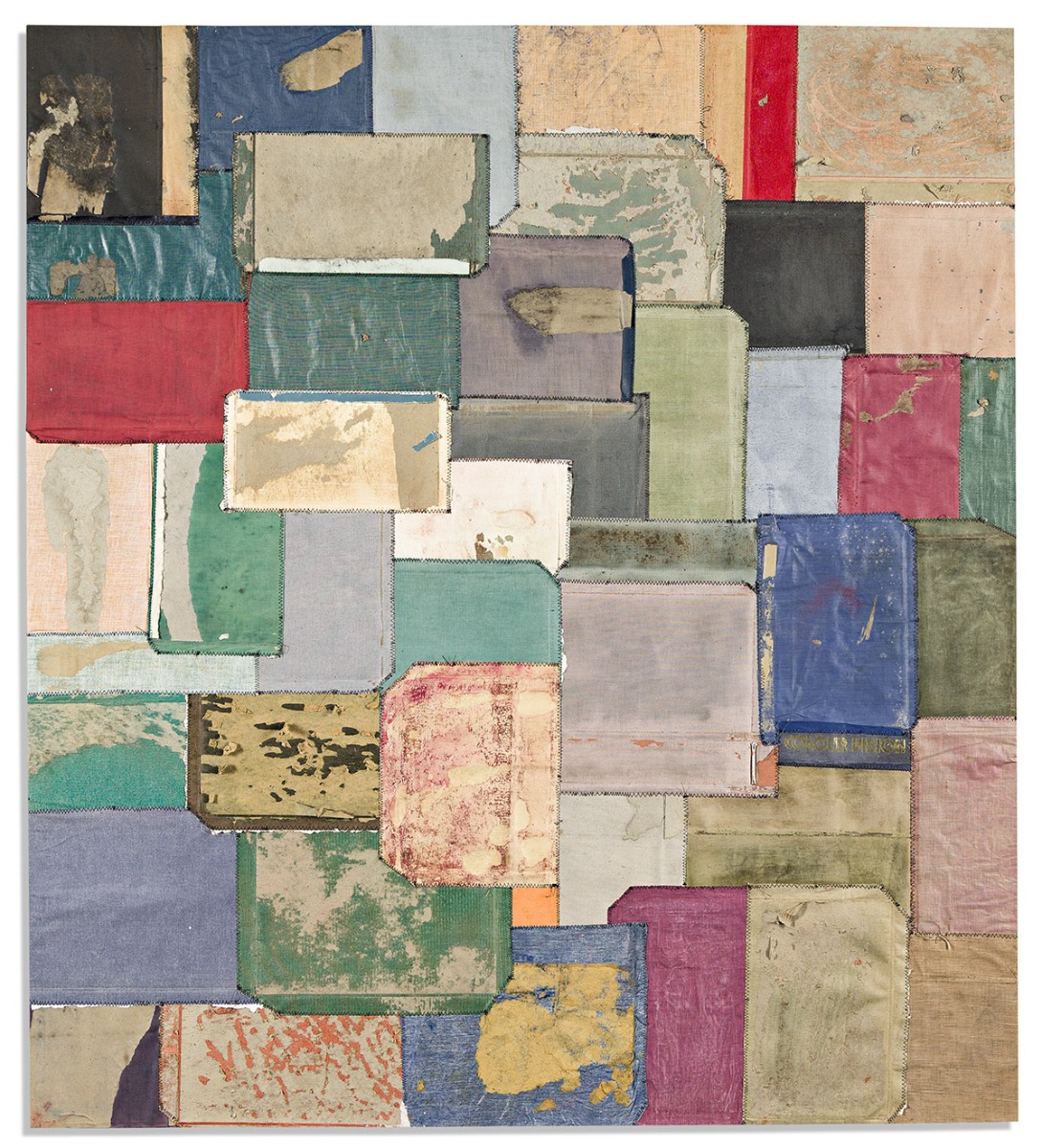

Exhibition Hours
Oct 14, 12–5; Oct 16, 12–5; Oct 17, 12–5; Oct 18, 12–5
Sale 2649 - Lot 6
Additional Images
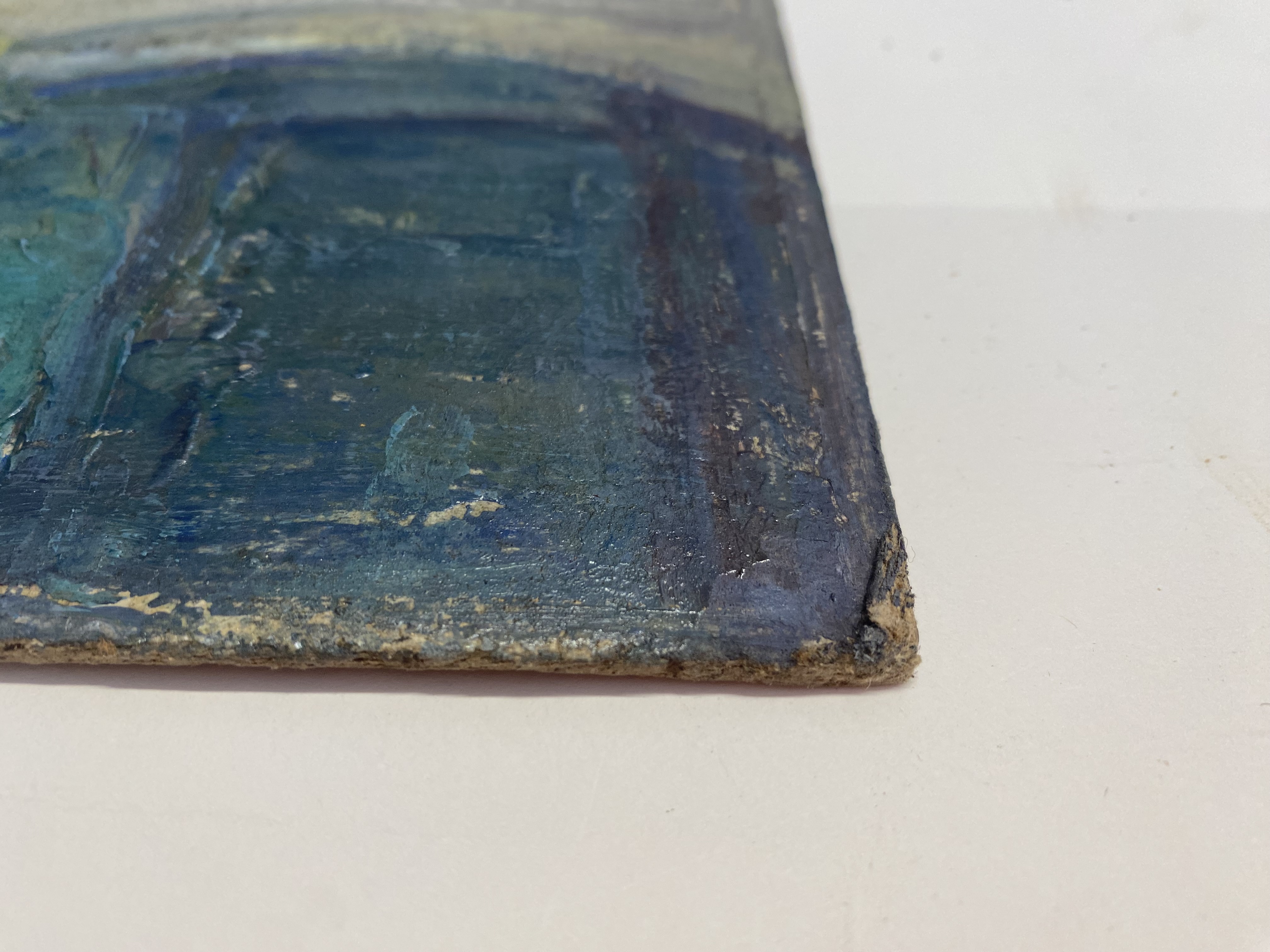
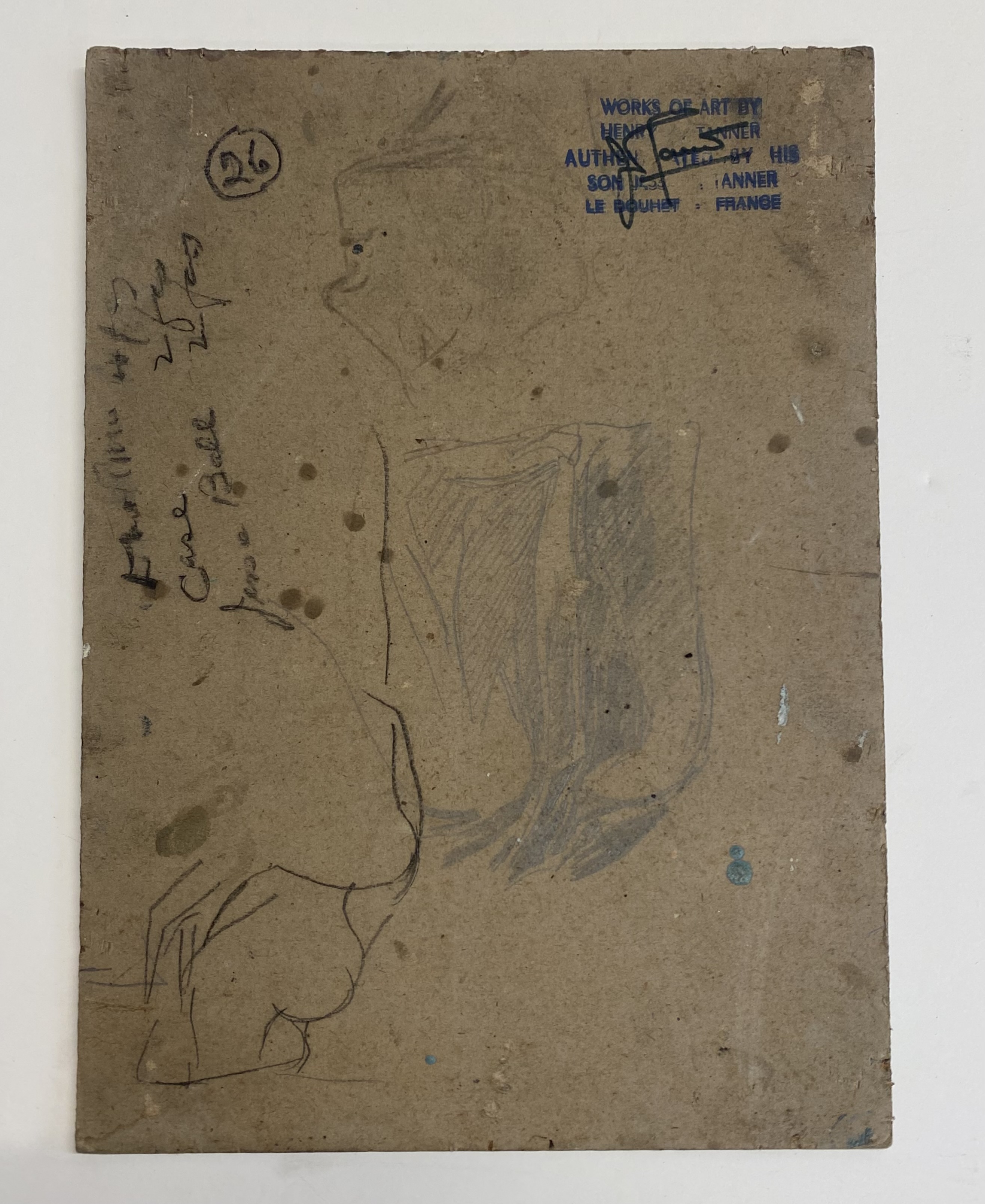
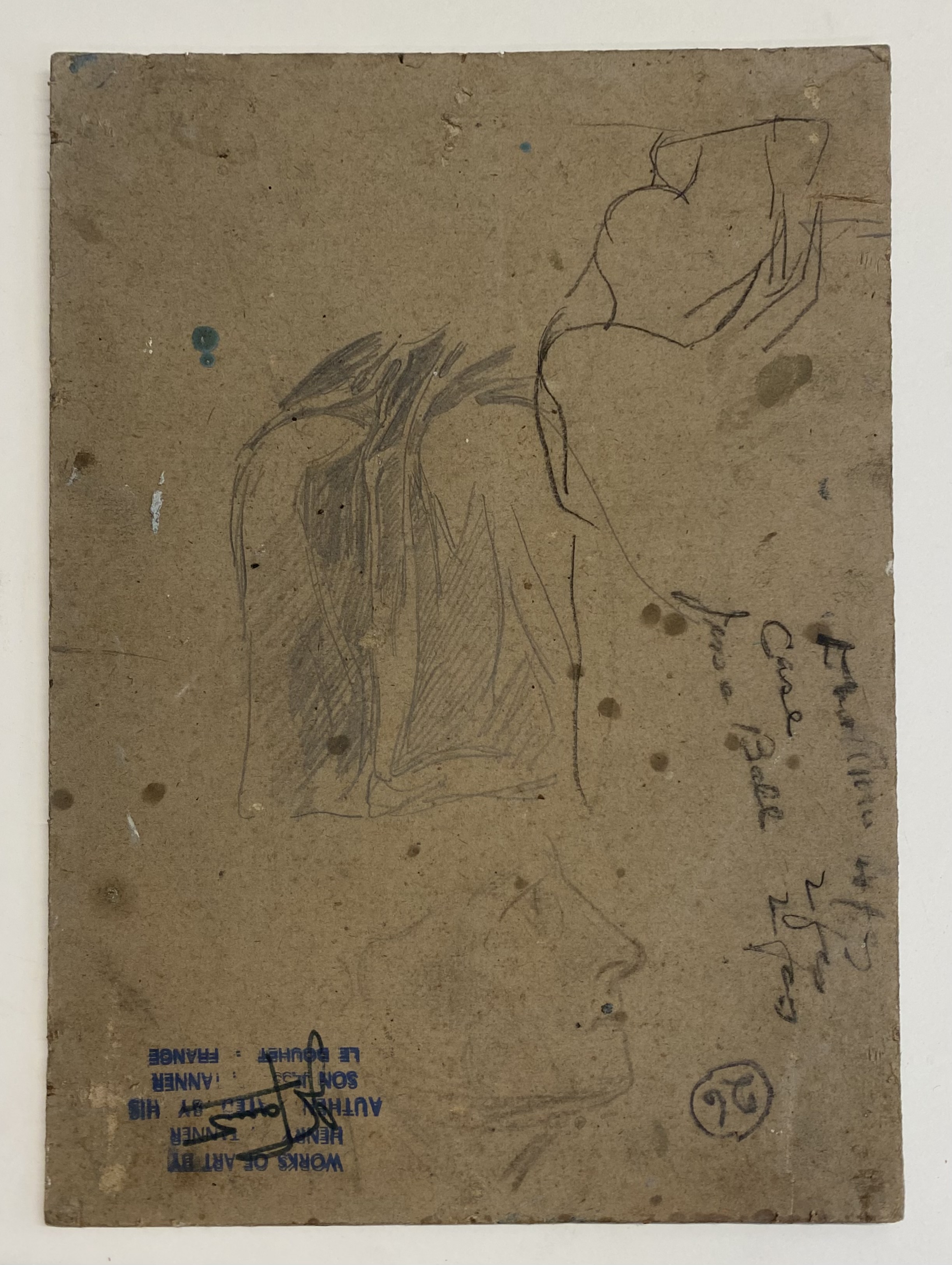
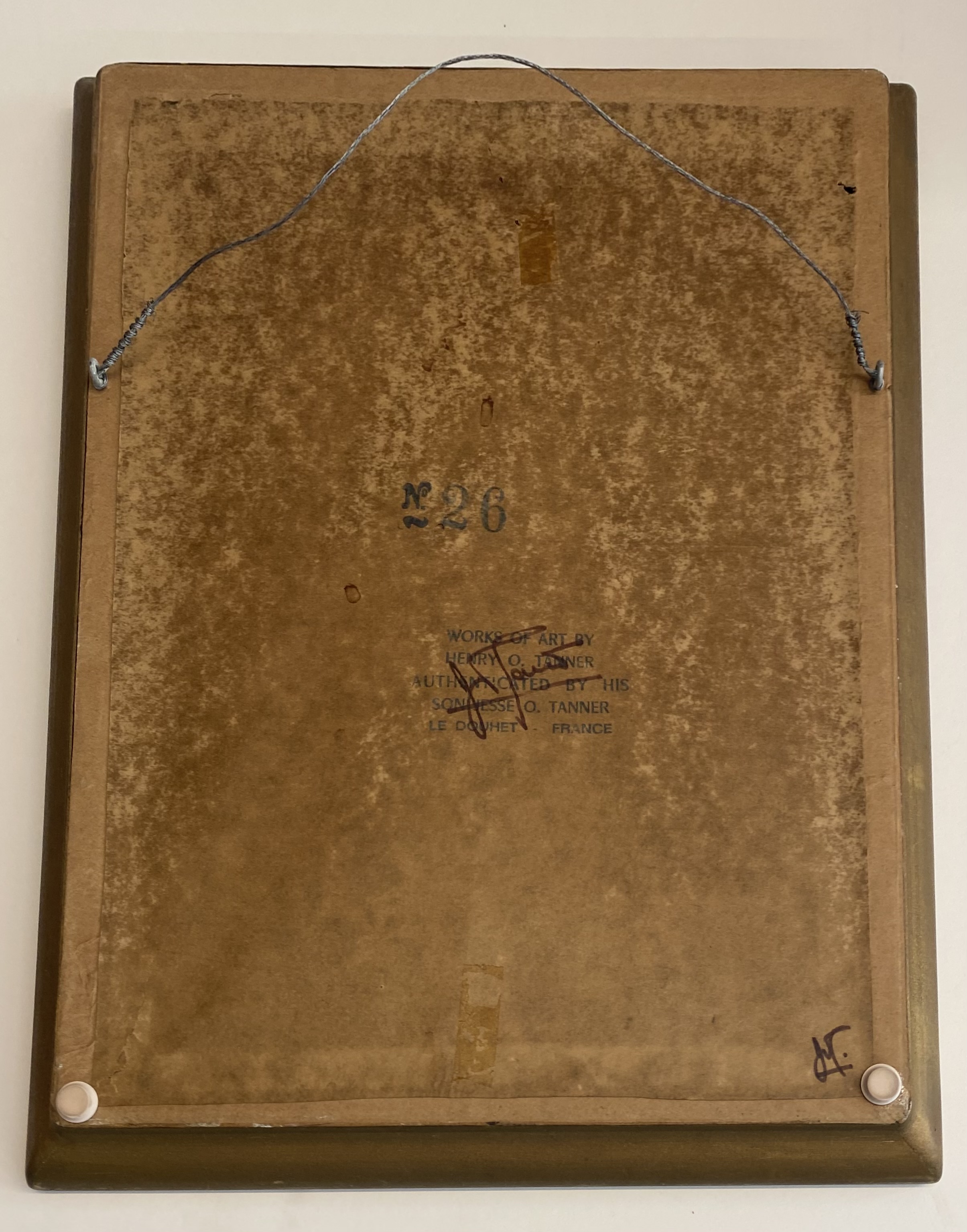
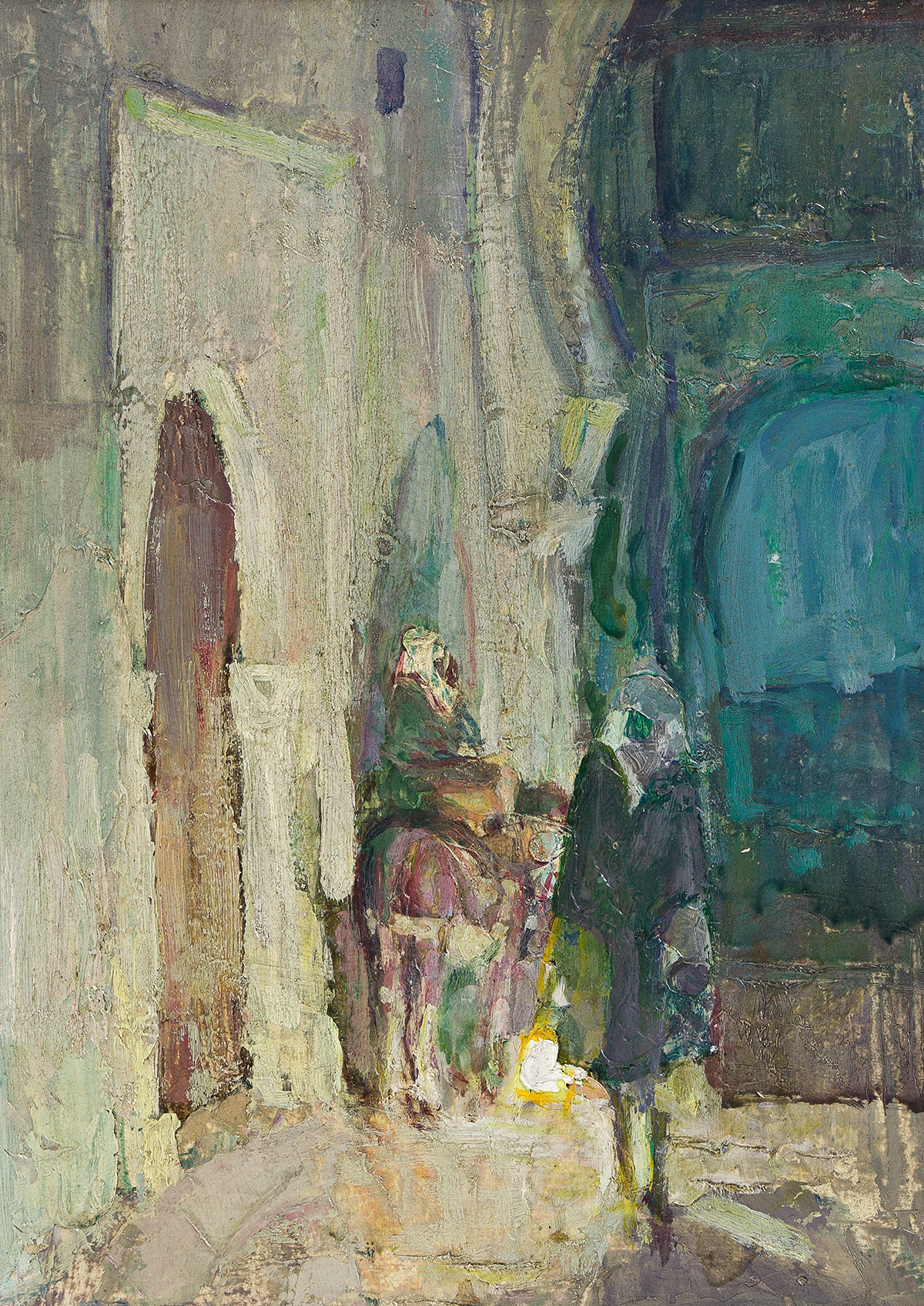
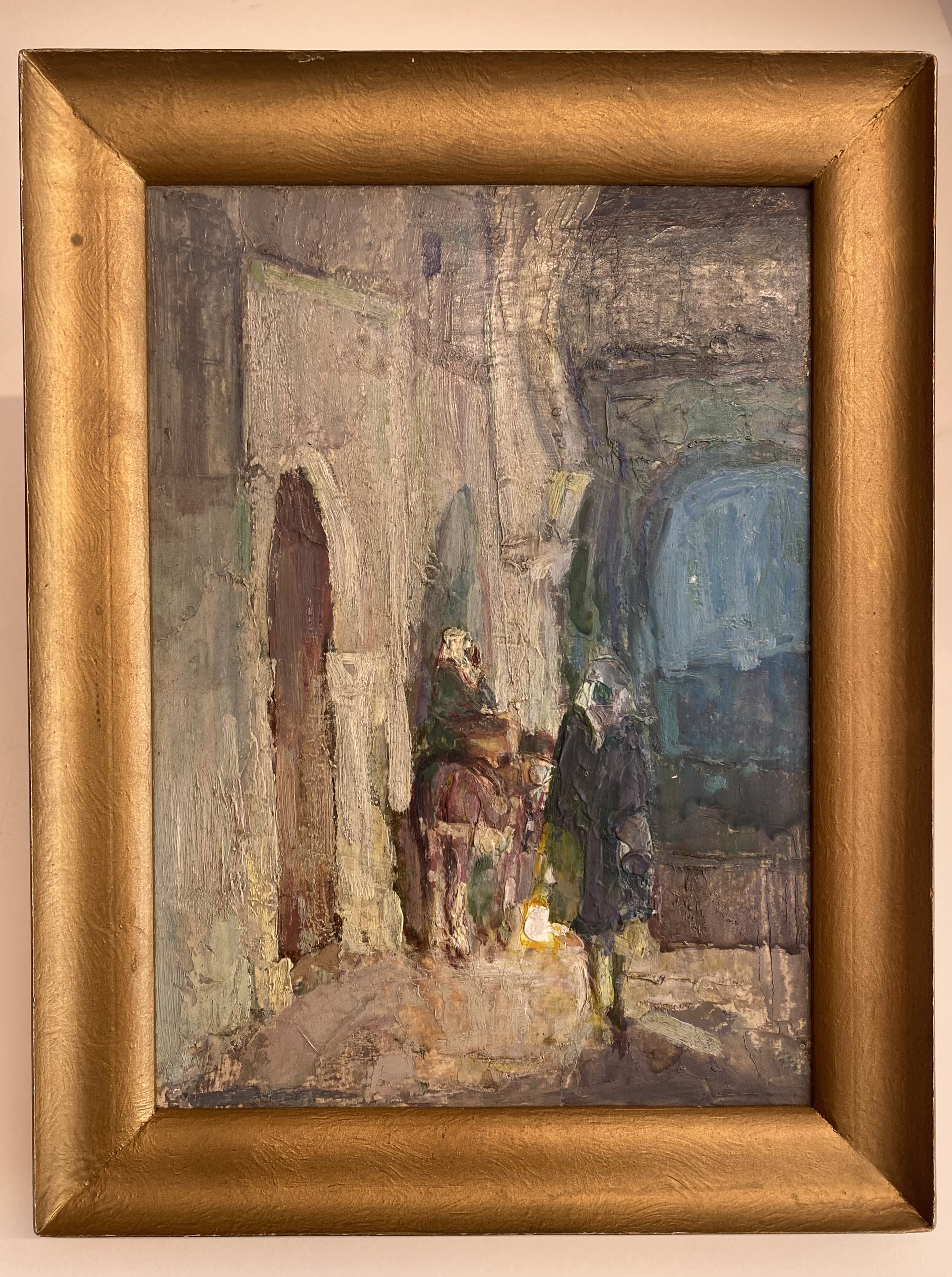
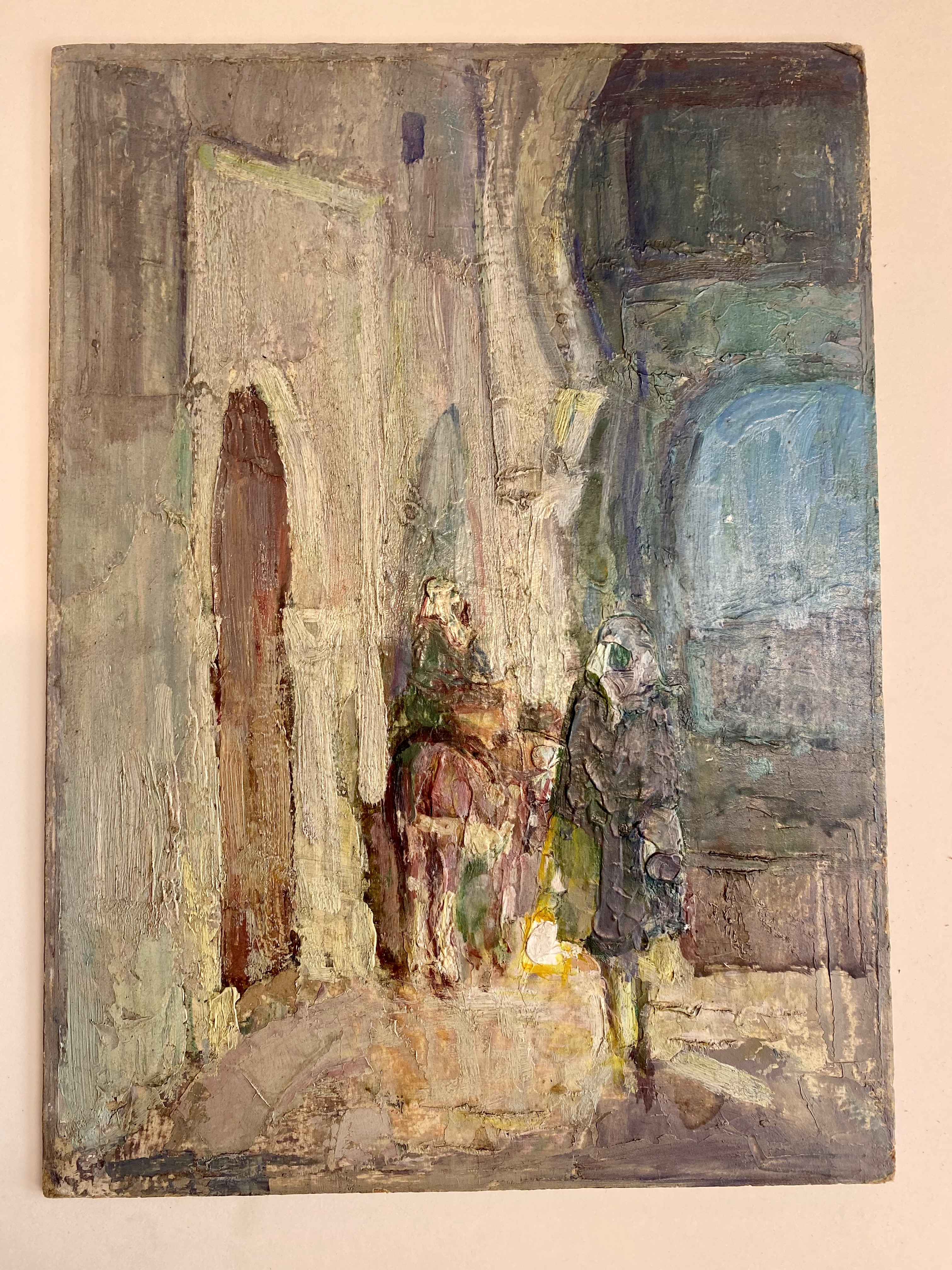
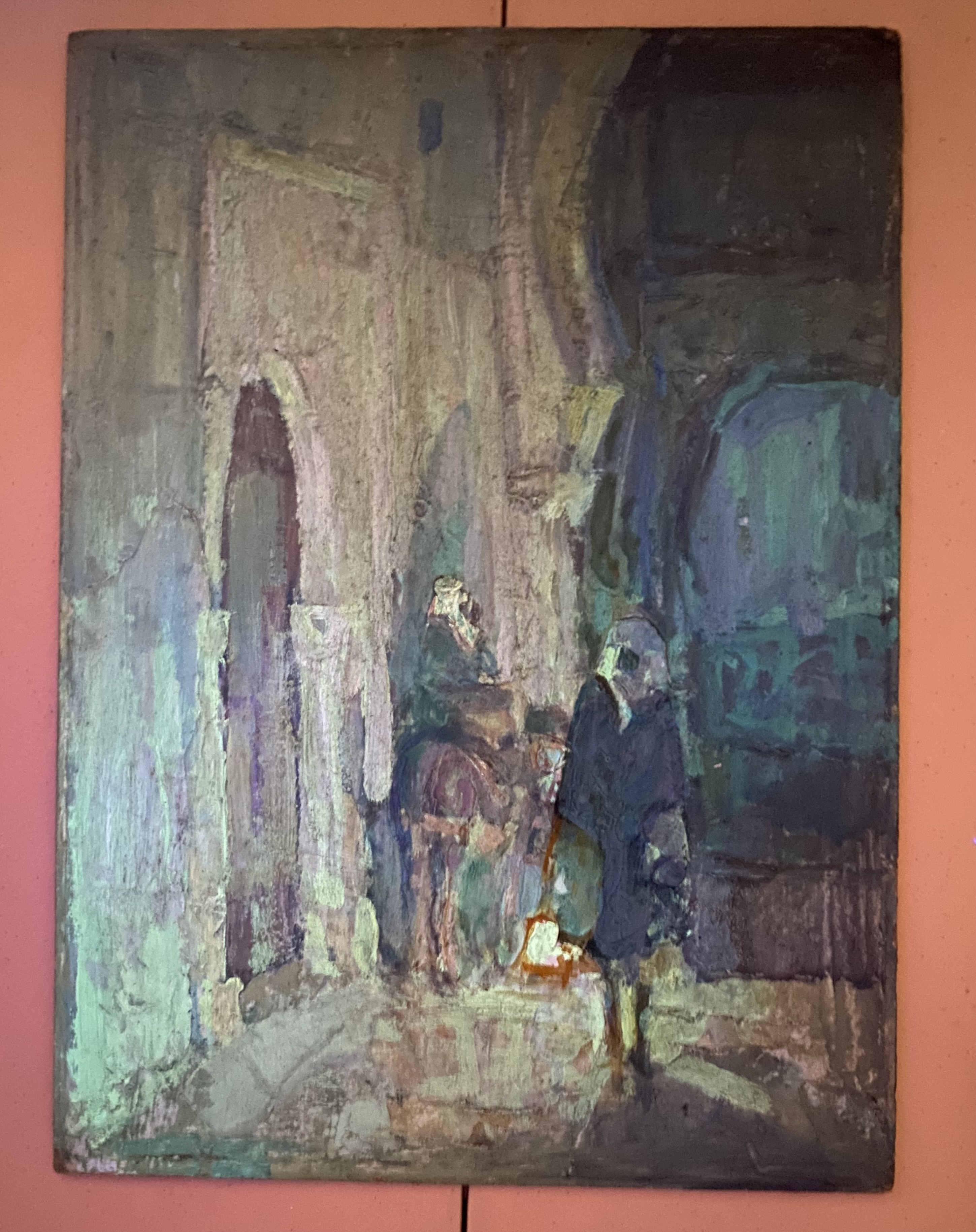
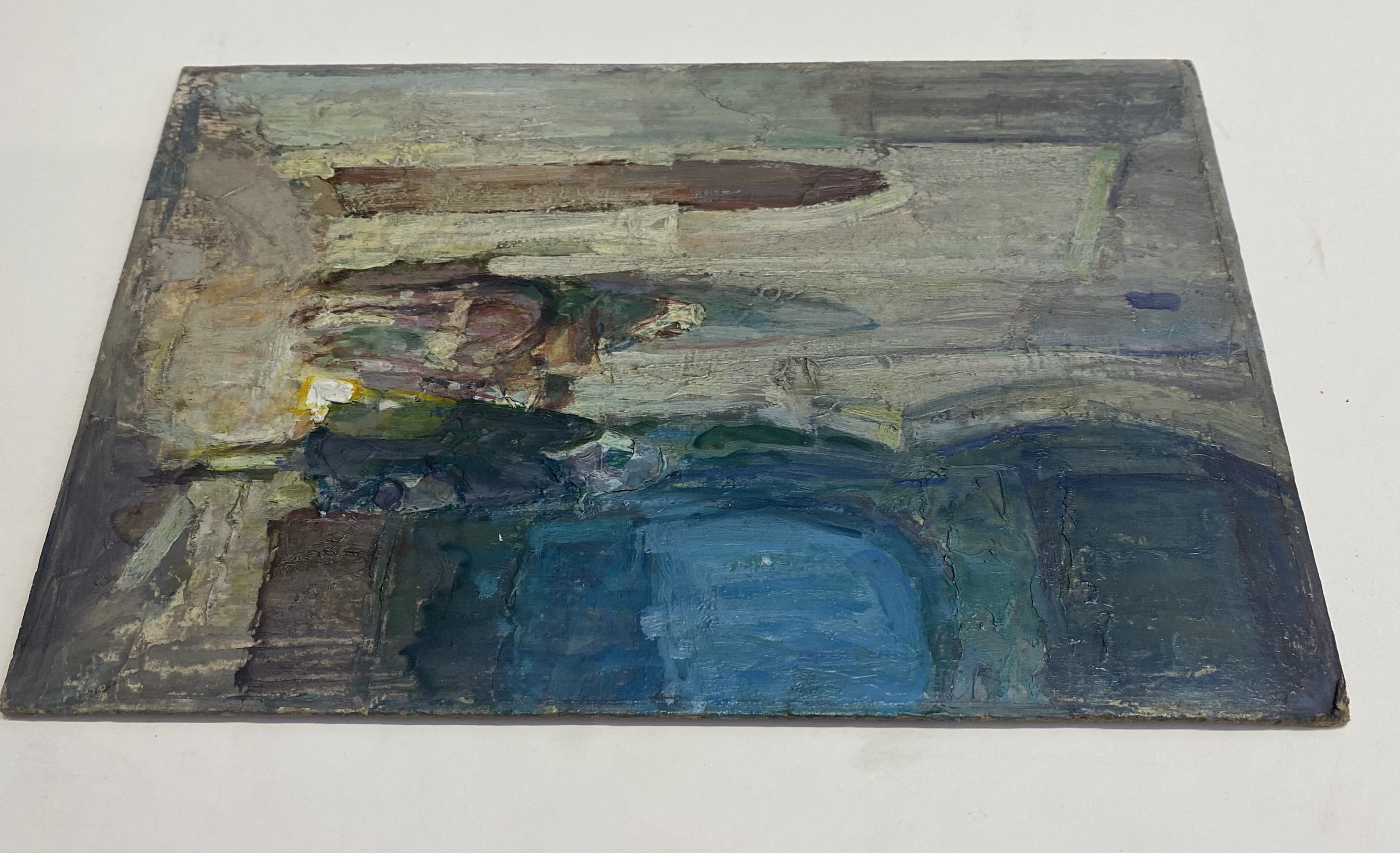
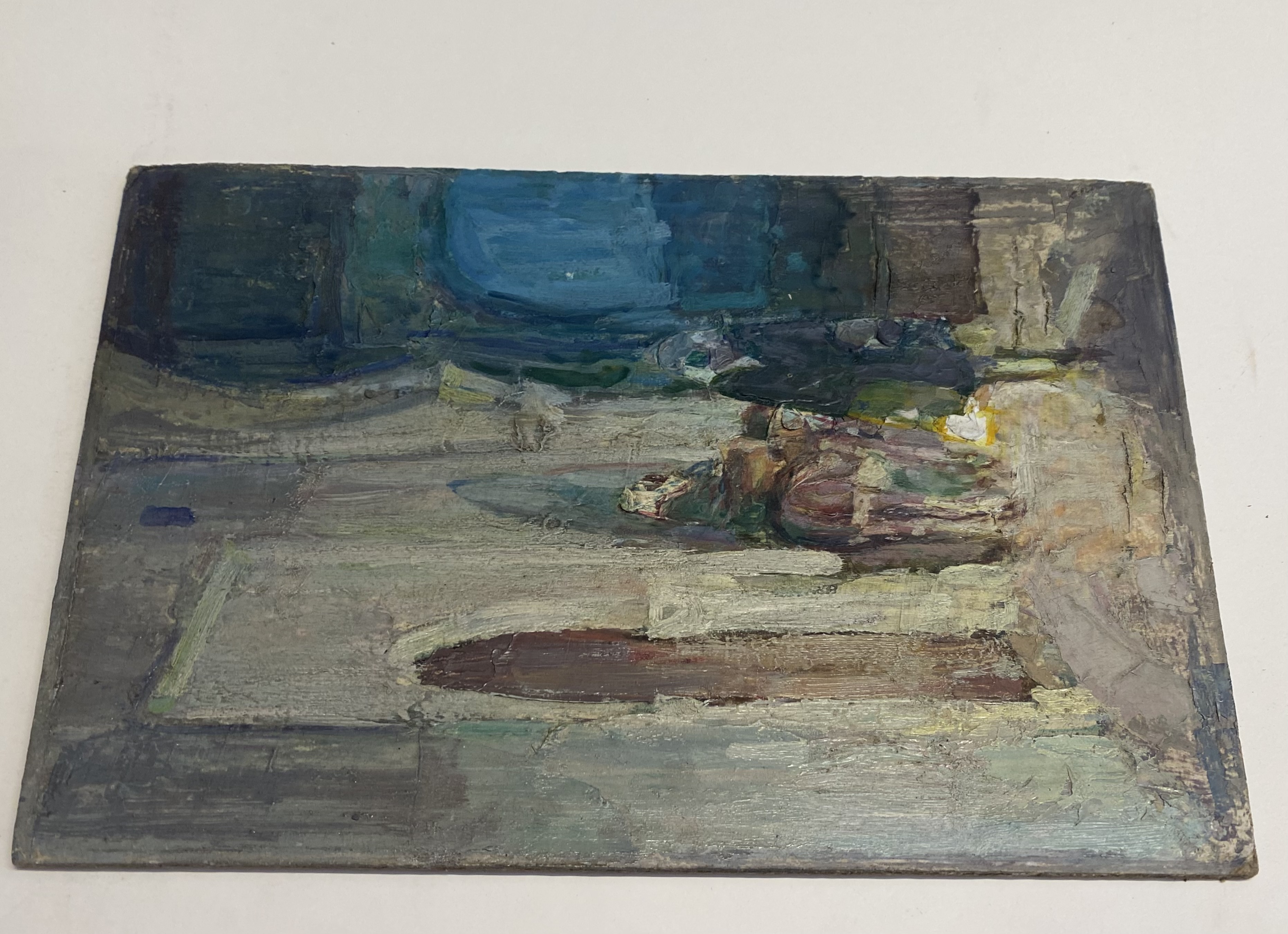




















Sale 2649 - Lot 6
HENRY OSSAWA TANNER (1859 - 1937)
Untitled Flight into Egyt.
Oil on thick cardstock, circa 1923. 330x241 mm; 13x9 inches. With the artist's estate ink stamp, signed and initialed by the artist's son Jesse O. Tanner in ink and numbered 26 in crayon on the verso. With pencil sketches of a woman's profile, figures and other notations in graphite on the verso. Also estate and ink stamped 26, and signed and initialed in ink by Jesse Tanner on the backing paper.
Provenance: the estate of the artist; Marcia M. Matthews, thence by descent, private collection.
Art historian Miriam M. Matthews wrote the first and seminal biography of the artist Henry O. Tanner, American Artist in 1969. Her research for the project included extensive correspondence with Jesse O. Tanner and studying the family records in France.
This richly impastoed oil study is an excellent example of Tanner's many nocturnal scenes of Biblical subjects. Tanner united an experimentation of material with the murkiness and intimacy of his moonlit scenes. It is a very similar to and a possible study for Tanner's Flight Into Egypt., 1923, in the collection of the Metropolitan Museum of Art. The one notable difference in the composition is in this smaller painting the figures are turned, with their backs to the viewer. This tonal study is typical of his later nocturnal scenes with broad painterly passages, densely layered surfaces and glazes of cerulean and cobalt blue.
This study is one of Tanner's later interpretations of his important series of paintings depicting the Holy Family's flight into Egypt. As early as 1898-99, the time of Tanner's second trip to the Holy Land, in 1898-99, Tanner began painting his intepretation of the Biblical story. It soon became a favorite subject of the artist - a depiction of the Mary, Jesus and Joseph escaping on a donkey under the cover of night. According to Dewey Mosby, Tanner had already painted four or five different versions by 1909. Today there are recorded at least fifteen versions dated between 1899 and 1932; including works in the Detroit Institute of Arts (1899), the Cincinnati Art Museum (c. 1907), the National Museum of African-American History and Culture (1916), the Museum of Fine Arts Houston (1921) and the Metropolitan Museum of Art (1923). Flight into Egypt was also a popular subject for Tanner with American collectors. Tanner's depiction of the Holy Family's clandestine escape (Matthew 2:12–14) reflects the narrative of escaping persecution found in the history of many enslaved African Americans and their pursuit of freedom. Mosby pp. 72-73; Marley p. 163, 188 and 288.





